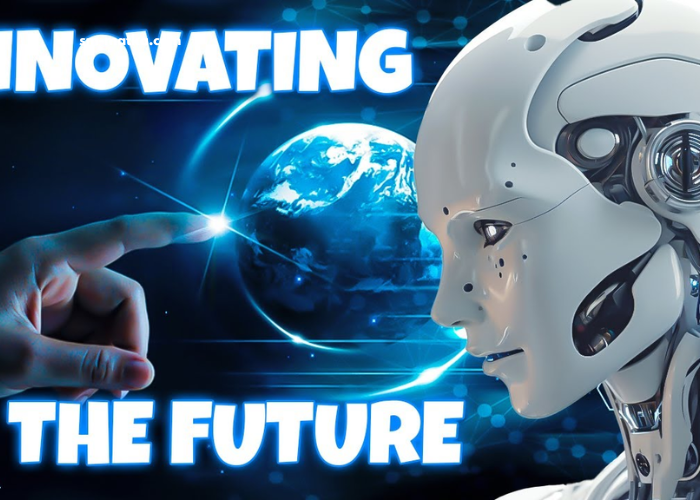
Technology is constantly evolving, bringing about groundbreaking changes in the way we live, work, and interact with the world around us. As we look to the future, it’s clear that technological advancements will continue to revolutionize industries, improve our quality of life, and tackle some of humanity’s most pressing challenges. In this article, we will explore the key trends shaping tomorrow’s technology landscape, from artificial intelligence to blockchain and beyond.
H2: Artificial Intelligence and Machine Learning
H3: The Rise of Smart Systems
Artificial Intelligence (AI) and Machine Learning (ML) have already made significant strides in various industries, but their potential is far from realized. These technologies enable machines to learn from experience, analyze data, and make decisions with minimal human intervention. In the coming years, we can expect AI and ML to become even more integral to our daily lives.
H3: Transforming Industries
AI is set to disrupt industries such as healthcare, finance, transportation, and manufacturing. In healthcare, AI-powered diagnostic tools will enhance the accuracy of disease detection, while robots and AI assistants will assist in patient care. In the financial sector, AI algorithms will automate trading, detect fraud, and optimize investment strategies. Autonomous vehicles, powered by AI, will revolutionize the transportation industry, reducing human error and increasing road safety.
H3: Ethical Considerations
As AI becomes more pervasive, concerns surrounding its ethical implications will continue to grow. Issues such as job displacement, data privacy, and algorithmic bias need to be addressed to ensure that AI benefits all of society. Governments, organizations, and technologists will need to collaborate on creating ethical frameworks to guide AI development.
H2: 5G and Beyond: Revolutionizing Connectivity
H3: The Next Generation of Wireless Technology
The rollout of 5G networks is one of the most anticipated technological developments in recent years. 5G promises to provide faster download and upload speeds, lower latency, and a more reliable connection. This advancement will not only enhance mobile communication but also enable the widespread adoption of other technologies such as the Internet of Things (IoT), autonomous vehicles, and smart cities.
H3: Enabling the Internet of Things
5G will be a game-changer for IoT, as it will allow billions of devices to connect seamlessly in real-time. From smart homes to industrial machines, 5G will support the massive growth of IoT, enabling devices to communicate with each other efficiently. This interconnected ecosystem will lead to smarter homes, more efficient supply chains, and a more connected world.
H3: The Road to 6G
While 5G is still in the process of being fully implemented, researchers are already looking ahead to 6G. Expected to arrive by the 2030s, 6G promises even faster speeds, higher bandwidth, and the integration of advanced AI capabilities. This next generation of wireless technology will further unlock the potential of AI, VR, and AR, driving the future of immersive digital experiences.
H2: Blockchain and Cryptocurrencies
H3: Decentralizing the Future
Blockchain technology is transforming the way we think about data storage, security, and transactions. At its core, blockchain is a decentralized, distributed ledger system that allows information to be securely stored and transferred without the need for intermediaries. This technology is already making waves in industries such as finance, supply chain management, and healthcare.
H3: The Future of Cryptocurrencies
Cryptocurrencies, such as Bitcoin and Ethereum, are built on blockchain technology. These digital currencies have the potential to disrupt traditional financial systems by offering faster, cheaper, and more secure transactions. As blockchain technology matures, we can expect cryptocurrencies to become more widely accepted, not just as an investment asset but as a legitimate form of payment.
H3: Blockchain Beyond Finance
While cryptocurrencies are the most well-known application of blockchain, the technology’s potential goes far beyond digital currencies. In supply chain management, blockchain can provide transparent and secure tracking of goods, reducing fraud and ensuring the authenticity of products. In healthcare, blockchain can be used to securely store patient data, making it easier to share information between healthcare providers while maintaining privacy.
H2: Quantum Computing: Unlocking Unprecedented Power
H3: The Power of Quantum Mechanics
Quantum computing is one of the most exciting and disruptive fields in technology. Unlike classical computers, which use bits to process information in binary form (0 or 1), quantum computers use quantum bits or qubits, which can exist in multiple states simultaneously. This unique property allows quantum computers to solve complex problems at speeds that are unimaginable with current technology.
H3: Revolutionizing Problem-Solving
Quantum computers have the potential to solve problems that are currently intractable for classical computers. These include optimizing supply chains, simulating molecular interactions for drug discovery, and breaking encryption methods. While quantum computers are still in their infancy, researchers are optimistic that they will soon be able to tackle real-world problems with enormous computational power.
H3: Challenges and Opportunities
Building practical quantum computers is a monumental challenge. Qubits are highly sensitive to their environment, making it difficult to maintain stable calculations. However, advancements in quantum error correction and hardware design are moving the field closer to practical applications. Once these challenges are overcome, quantum computing could revolutionize industries such as pharmaceuticals, finance, and logistics.
H2: Virtual Reality (VR) and Augmented Reality (AR)
H3: Immersive Experiences for All
Virtual Reality (VR) and Augmented Reality (AR) are technologies that are quickly gaining traction in industries such as entertainment, education, and healthcare. VR creates fully immersive digital environments, while AR overlays digital content onto the real world, enhancing the user’s experience.
H3: The Future of Entertainment
In the entertainment industry, VR and AR will enable entirely new forms of content consumption. VR gaming, for example, offers players an immersive experience that traditional video games cannot match. Similarly, AR apps are transforming how we interact with our surroundings, from enhancing live concerts to providing real-time information during museum tours.
H3: VR and AR in Healthcare and Education
VR and AR are poised to make significant impacts in education and healthcare. In healthcare, VR can be used for surgical training, allowing doctors to practice complex procedures in a risk-free environment. In education, AR and VR can bring subjects to life, providing students with immersive learning experiences that would be impossible in a traditional classroom.
H2: Renewable Energy and Sustainability Technologies
H3: Powering the Future with Clean Energy
As concerns about climate change and environmental degradation continue to grow, renewable energy technologies are becoming increasingly important. Solar, wind, and hydropower are already significant sources of clean energy, and innovations in energy storage, grid management, and efficiency are making renewable energy more accessible and cost-effective.
H3: Smart Grids and Energy Storage
The future of renewable energy depends not only on generating clean power but also on how we store and distribute it. Smart grids, which use digital technology to manage electricity distribution, are making energy systems more efficient and resilient. Advances in battery storage technologies will ensure that renewable energy can be stored for use when the sun isn’t shining or the wind isn’t blowing.
H3: Sustainability in Everyday Life
Beyond energy production, sustainability will be a key focus in consumer products and services. From electric vehicles to sustainable packaging, companies are investing in technologies that reduce their environmental impact. The rise of circular economies, where products are designed for reuse and recycling, will drive the future of sustainability in technology.
H2: The Role of Biotechnology in the Future
H3: Advancing Human Health and Longevity
Biotechnology is poised to revolutionize healthcare by offering new treatments, diagnostics, and solutions to some of the world’s most challenging health issues. Advances in gene editing, regenerative medicine, and personalized medicine will reshape the future of medicine.
H3: Gene Editing and CRISPR
Gene-editing technologies like CRISPR allow scientists to alter the DNA of organisms with incredible precision. This technology has already shown promise in treating genetic disorders and may one day be used to cure diseases such as cancer, HIV, and even aging. As research advances, gene editing could become a standard tool in healthcare, enabling personalized treatments tailored to an individual’s genetic makeup.
H3: Regenerative Medicine and Organ Growth
In regenerative medicine, scientists are developing techniques to regrow damaged tissues and organs, potentially eliminating the need for organ transplants. Stem cell research is at the forefront of this field, with the potential to treat a wide range of conditions, from spinal cord injuries to heart disease.
Conclusion: Embracing the Future
The future of technology is filled with endless possibilities. From AI and quantum computing to renewable energy and biotechnology, the trends shaping tomorrow will fundamentally alter the way we live, work, and interact with the world. However, with these advancements come significant challenges, including ethical considerations, data privacy concerns, and the need for regulatory frameworks to ensure that these technologies are used responsibly. By embracing innovation while addressing these challenges, we can build a future where technology enhances human potential and contributes to a sustainable and equitable world.
As we look ahead, one thing is certain: the pace of technological change will continue to accelerate, and those who stay informed and adaptable will be best positioned to navigate the opportunities and challenges that lie ahead.



